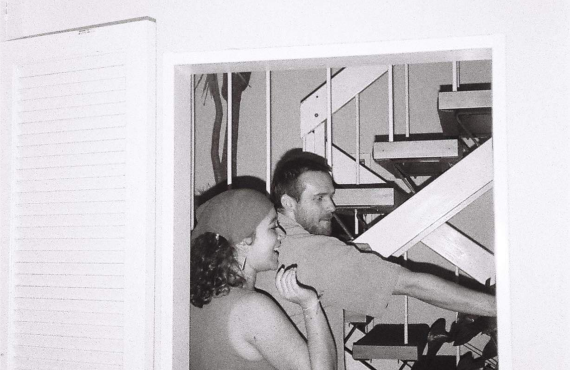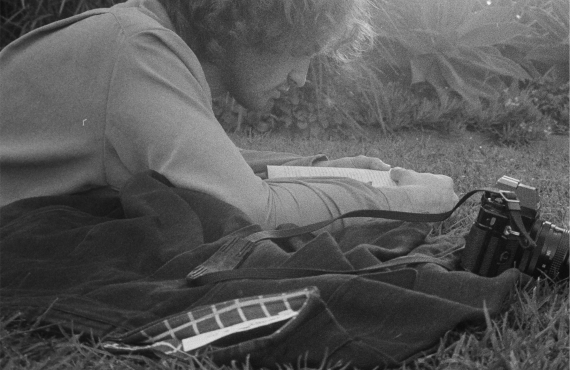What does being a good partner look like?
By Rachel Barker
Uplifting your partner
When you date someone, it should start with you already genuinely liking who they are. You don’t have to think they’re perfect (they can’t be) – but you should want to see them thrive. According to relationship counsellor Laressa Donaldson, this means, “Honouring, supporting and encouraging each other to live life in a way that is aligned with each person's values.”
Support also includes not being judgemental of our partner. Relationship expert Eleanor Butterworth says that we need to be able to “share things that make us feel a bit vulnerable, or the things that are deeply important to us, knowing we will be heard and not judged.”
Ultimately it comes down to the same goal: you want your partner to feel loved for being themselves, not another version of themselves that you’ve decided they should be – And if you struggle to support and uplift them as they are, they might not be the person for you.
The ability to compromise
All healthy relationships require work – but what does work really look like? A huge part of that that can be tangibly put into practice is compromise. Psychologist Heath Hutton describes compromise as the “sharing of power and decision-making in the relationship.”
This sometimes means finding a solution that works for both people and sometimes it means balancing how often each partner has more control over a situation. It really comes down to seeing that their hopes and dreams are as real and valuable as yours and letting the bigger picture of your relationship reflect that.
Putting empathy above assumptions
Social psychology researcher Matt Hammond explains that “Sometimes we try to ‘fix’ problems for others, at the cost of ignoring that person’s expression of emotions that signal they need their feelings to be recognized and validated.”
Providing help and support is great, but we have to put aside what we would want in moments of sadness or anger, and make sure we’re considering what our partner needs.
Hammond explains that the best help you can give is “attending to what someone requests,” (which is known as “responsive support.”)
Self-awareness of your faults
It’s not always easy to look at ourselves with the same critical eye we look at others with, but it’s crucial to being a good partner.
Butterworth explains, “The way we feel and treat ourselves will have a big impact on the kind of relationships we have… So thinking about the way we talk to ourselves, the way we respond to our own mistakes, and the acceptance and care we show ourselves is often the first building block for doing this well with others.”
Being self-aware isn’t always going to be easy, as it sometimes comes with acknowledging difficult traumas or negative traits within ourselves. Maybe you tend to shout or to tell white lies. Maybe you’re bringing in more significant trauma from a previous relationship. But without recognising our own issues, we can’t see the effect it has on our relationship, and that means we can’t improve it.
Butterworth explains that it’s down to us to take “responsibility and action for our own healing”. While your partner is there to support you, it’s not their responsibility to ‘fix’ you.
Respecting our partner's boundaries
There are points at which a boundary that’s been set might not be something you’re happy to meet, and that can mean it’s time for the relationship to wrap up.
But if a partner is communicating to you that they need to stop drinking because it’s affecting their happiness or that they’d like to take a night off from seeing each other so they have time to work on their hobbies, being a good partner means understanding where that desire comes from, accepting it and working with it.
Being your own person, and letting your partner do that too
You may have heard the saying ‘We’re born alone and we die alone’, and as grim as it sounds it’s a good thing to remember. You are your own person, above everything else – as is your partner – and flourishing as an individual is something you shouldn’t forget about while you’re in a relationship.
Butterworth explains that as a good partner, you should create, “space to explore; to grow separately and together.”
As mental health counsellor Maria Milmine says, it also means understanding that, “one person cannot possibly meet all of another person's needs. ”
This can look like having separate interests or different friend groups. Coming back together means you bring all the knowledge, joy and excitement from other parts of your life into your relationship, without having to do everything together.
Not taking jabs during arguments
When we feel attacked or in conflict, it can be a natural defense mechanism to snap back. But we should never be going out of our way to dog on our partner and make them feel worse.
Fighting will happen in relationships, but as Butterworth explains, “In a healthy couple we ‘fight fair’, so we don’t resort to hurting our partner (physically or emotionally), ourselves or our property… The goal of the conflict is to understand each other more, not to win.”
The point is to find resolutions – to seek to understand our partner better rather than criticise them.
Rather than be defensive, Donaldson says that it’s important to be “listening to our partner's experience and taking responsibility for any harm we have caused.”
In general, it can be hard to beat the hot-headedness in arguments that makes us defensive, cruel and ignorant, but learning to slow down and not be reactive is a massive part of being the best partner you can be.
Being honest and owning up
Hutton explains that if there are no disagreements in a relationship, this might actually mean someone isn’t sharing their true feelings. It’s a level of vulnerability that can be a struggle for a lot of people. As Milmine says, “Often people are afraid [speaking up] might hurt others feelings or get an unwanted reaction.”
But bringing our feelings forward and communicating when we’ve been harmed or misunderstood is crucially important to not allowing our personal values to be diminished. If you feel truly unable to share your honest thoughts with your partner, you may not be with the right person for you.
The other side of honesty comes back to being self-aware of your own faults. Always be truthful with your partner when they ask. A relationship where you’re lying or hiding things is not a healthy one.
Being imperfect and trying anyway!
Part of being imperfect is about accepting who you are and continuing to love yourself. The other part is understanding that there are still things you can work on and that it’s always worth trying.
You should know that you’re not a failure if your relationship isn’t thriving all the time. Hutton emphasises that, “Healthy relationships allow difference and conflict,” and that's okay.
At the end of the day there is no perfect relationship or perfect person, but if you’re bringing awareness, understanding and communication to your relationship, then you can feel confident in yourself as a partner. Keep trying and keep thriving.
Tagged
You may also like
-
 Read
ReadDo you like your partner as a person, or do you like the lifestyle they offer you?
Advice, Relationships















